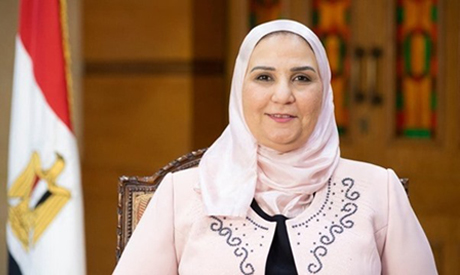
Nevine El-Kabbag, Minister of Social Solidarity was instrumental in the issuance of the new law.
Two months after the cabinet approved the executive regulations of Law 149/2019, ratified by President Abdel-Fattah Al-Sisi in August, the regulations have been published. The law replaces legislation issued in 2017 which was heavily criticised by civil society locally and internationally for restricting the work of NGOs.
The new law and its executive regulations are a result of a process of consultation between different stakeholders, including the ministries of justice, solidarity and interior, the General Federation of Non-governmental Organisations in Egypt, the National Council of Human Rights, public figures, research centres and representatives from 1,164 local NGOs.
The consultations were based on a study of international best practice, with an eye on broadening the role and activities of NGOs in Egypt. The dialogue concluded that the relationship between state and civil society needed redrawing based on the basis of partnership and greater mutual trust.
While the regulations require NGOs to provide extensive data to register with the authorities, including information on founders and planned activities, the new law removed obstacles to the establishment of NGOs contained in the earlier law 70/2017. Section one of the new law allows NGOs to be established following notification, dispensing with the 60-day delay that previously applied, and exempts the newly established entity from registration fees, customs and real estate taxes.
The law places a 25 per cent cap on the number of non-Egyptian directors on the board of NGOs, up from 10 per cent in its predecessor, allowing for greater foreign involvement in civil society.
Licensing a foreign NGO requires Foreign Ministry approval. Egyptian NGOs, however, are allowed to open offices in other countries and receive donor funds. Such funds are restricted to a single bank account, making it easier to track the funding and its sources, except in the case of NGOs with annual revenues and expenses of more than LE5 million, when multiple accounts can be used.
It is estimated that 700 NGOs in Egypt receive external funding from non-governmental institutions such as the United Nations Population Fund (UNFPA), the United Nations Educational, Scientific and Cultural Organisation (UNESCO) and the United States Agency for International Development (USAID). In order to receive foreign funds NGOs must notify the Ministry of Social Solidarity and demonstrate compliance with combating terrorism and money laundering legislation. The new law mandates a 60-day period, down from 90, for any approval decision on foreign funding, and considers non-response within 60 days as implicit approval.
Existing NGOs have been granted a year to comply with the new regulations.
Between 2014 and 2016 there were several crackdowns on foreign-funded NGOs working in Egypt due to lack of information about their sources of funding.
A number of NGOs were closed, their assets frozen, and some personnel jailed. The new act includes provisions to dissolve associations and prosecute those found in breach of the relevant laws, though custodial sentences have been replaced by financial penalties.
There are likely to be structural impediments to implementing the new law. The requirement that all donations be in the form of bank transfers is expected to cause problems given the deficiencies in local Fintech infrastructure.
On the whole, though the new executive regulations of civil society act dealt with deficiencies and shortcoming in the previous act of 2017 and highlight the importance of organising NGOs’ activities in Egypt and paving the way before them to carry out in a healthy partnership with the state their needed efforts for the social and political good of the whole society.
NGOs working in Egypt are banned by the new law from engaging in political activities.
*The writer is a researcher at the Egyptian Centre for Strategic Studies.
*A version of this article appears in print in the 21 January, 2021 edition of Al-Ahram Weekly.
Short link: